第18章
A contradiction arose from which there were two exits.Either that which I called reason was not so rational as I supposed,or that which seemed to me irrational was not so irrational as I supposed.And I began to verify the line of argument of my rational knowledge.
Verifying the line of argument of rational knowledge I found it quite correct.The conclusion that life is nothing was inevitable;but I noticed a mistake.The mistake lay in this,that my reasoning was not in accord with the question I had put.The question was:"Why should I live,that is to say,what real,permanent result will come out of my illusory transitory life--what meaning has my finite existence in this infinite world?"And to reply to that question I had studied life.
The solution of all the possible questions of life could evidently not satisfy me,for my question,simple as it at first appeared,included a demand for an explanation of the finite in terms of the infinite,and vice versa.
I asked:"What is the meaning of my life,beyond time,cause,and space?"And I replied to quite another question:"What is the meaning of my life within time,cause,and space?"With the result that,after long efforts of thought,the answer I reached was:"None."
In my reasonings I constantly compared (nor could I do otherwise)the finite with the finite,and the infinite with the infinite;but for that reason I reached the inevitable result:
force is force,matter is matter,will is will,the infinite is the infinite,nothing is nothing--and that was all that could result.
It was something like what happens in mathematics,when thinking to solve an equation,we find we are working on an identity.the line of reasoning is correct,but results in the answer that a equals a,or x equals x,or o equals o.the same thing happened with my reasoning in relation to the question of the meaning of my life.The replies given by all science to that question only result in--identity.
And really,strictly scientific knowledge--that knowledge which begins,as Descartes's did,with complete doubt about everything--rejects all knowledge admitted on faith and builds everything afresh on the laws of reason and experience,and cannot give any other reply to the question of life than that which I obtained:an indefinite reply.Only at first had it seemed to me that knowledge had given a positive reply--the reply of Schopenhauer:that life has no meaning and is an evil.But on examining the matter I understood that the reply is not positive,it was only my feeling that so expressed it.Strictly expressed,as it is by the Brahmins and by Solomon and Schopenhauer,the reply is merely indefinite,or an identity:o equals o,life is nothing.
So that philosophic knowledge denies nothing,but only replies that the question cannot be solved by it--that for it the solution remains indefinite.
Having understood this,I understood that it was not possible to seek in rational knowledge for a reply to my question,and that the reply given by rational knowledge is a mere indication that a reply can only be obtained by a different statement of the question and only when the relation of the finite to the infinite is included in the question.And I understood that,however irrational and distorted might be the replies given by faith,they have this advantage,that they introduce into every answer a relation between the finite and the infinite,without which there can be no solution.
In whatever way I stated the question,that relation appeared in the answer.How am I to live?--According to the law of God.
What real result will come of my life?--Eternal torment or eternal bliss.What meaning has life that death does not destroy?
Union with the eternal God:heaven.
So that besides rational knowledge,which had seemed to me the only knowledge,I was inevitably brought to acknowledge that all live humanity has another irrational knowledge--faith which makes it possible to live.Faith still remained to me as irrational as it was before,but I could not but admit that it alone gives mankind a reply to the questions of life,and that consequently it makes life possible.Reasonable knowledge had brought me to acknowledge that life is senseless--my life had come to a halt and I wished to destroy myself.Looking around on the whole of mankind I saw that people live and declare that they know the meaning of life.I looked at myself--I had lived as long as I knew a meaning of life and had made life possible.
Looking again at people of other lands,at my contemporaries and at their predecessors,I saw the same thing.Where there is life,there since man began faith has made life possible for him,and the chief outline of that faith is everywhere and always identical.
Whatever the faith may be,and whatever answers it may give,and to whomsoever it gives them,every such answer gives to the finite existence of man an infinite meaning,a meaning not destroyed by sufferings,deprivations,or death.This means that only in faith can we find for life a meaning and a possibility.